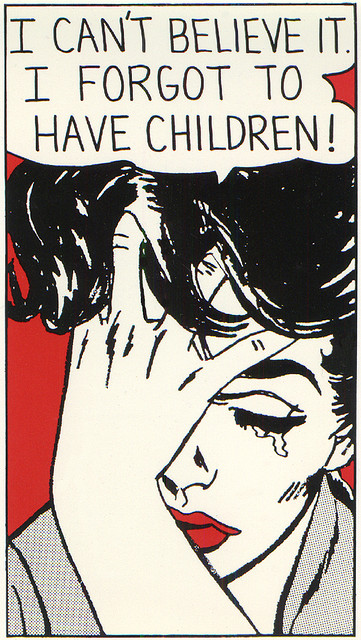Author Archives: Diane Balser
February 26, 2013 by Diane Balser
Non-Motherhood-by-Choice
For decades, the Jewish community has bemoaned the declining birthrate among Jews (except among the ultra-Orthodox). Now, secular America has caught up with Jewish worries, with reports examining what it means for the economic and social fabric when an entire population falls below replacement level.
But for many women, a decision not to have children plays out in more personal ways, as the numerous responses to a recent article in Newsweek’s The Daily Beast attest.
In a preview of an article to appear in a forthcoming issue of Lilith, read one woman’s journey through her choice not to become a mother.
As a Jewish woman who has chosen not to have children, how do I make sense of my life in the context of Judaism’s first commandment—God enjoining Eve and Adam, in Genesis 1:28, to “be fruitful and multiply, and fill Earth”?
I was raised in a religious home in the 1940s and ’50s, but I don’t remember either of my parents pressuring me to be a mother when I grew up. Still, isn’t that what Jewish females do? We grow up, get married, and then multiply.
By early adulthood, I had left religious practice behind, believing, as a feminist, that a secular life would give me access to a lot more freedom. One day in the mid-1970s, I bought myself the iconic t-shirt of the era, the Roy Lichtenstein cartoon of a distraught woman with hot-red lips and the text bubble, “I can’t believe it. I forgot to have children.” I wore the tee as a joke until I realized it wasn’t. I needed a plan.
Would I be fruitful and multiply, or not?
I started an inventory of my girlfriends in the women’s liberation movement. Some had chosen single motherhood, some were helping their married friends raise their children, some, mostly lesbians, were choosing motherhood via artificial insemination. Some were going the conventional route, as had most of our parents. There were definitely options. I didn’t want to “forget” to have children, though. I wanted to make an informed, solid decision.
- No Comments
 Please wait...
Please wait...
